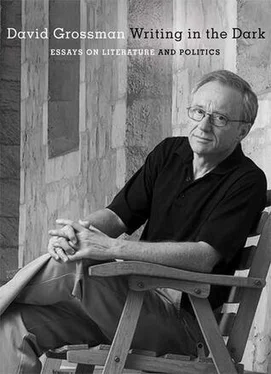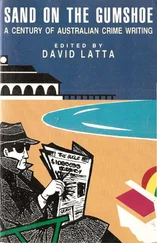My generation, the children of the early 1950s in Israel, lived in a thick and densely populated silence. In my neighborhood, people screamed every night from their nightmares. More than once, when we walked into a room where adults were telling stories of the war, the conversation stopped immediately. We did pick up the occasional fragment: “The last time I saw him was on Himmelstrasse in Treblinka,” or, “She lost both her children in the first Aktion .”
Every day, at twenty minutes past one, there was a ten-minute program on the radio in which a female announcer with a glum and rhythmic voice read the names of people searching for relatives lost during the war and in the Holocaust: Rachel, daughter of Perla and Abraham Seligson from Przemy  l, is looking for her little sister Leah’leh, who lived in Warsaw between the years … Eliyahu Frumkin, son of Yocheved and Hershl Frumkin from Stry, is looking for his wife, Elisheva, née Eichel, and his two sons, Yaakov and Meir … And so on and so forth. Every lunch of my childhood was spent listening to the sounds of this quiet lament.
l, is looking for her little sister Leah’leh, who lived in Warsaw between the years … Eliyahu Frumkin, son of Yocheved and Hershl Frumkin from Stry, is looking for his wife, Elisheva, née Eichel, and his two sons, Yaakov and Meir … And so on and so forth. Every lunch of my childhood was spent listening to the sounds of this quiet lament.
When I was seven, the Eichmann trial was held in Jerusalem, and then we listened to the radio during dinner when they broadcast descriptions of the horrors. You could say that my generation lost its appetite, but there was another loss too. It was the loss of something deeper, which we did not understand at the time, of course, and which is still being deciphered throughout the course of our lives. Perhaps what we lost was the illusion of our parents’ power to protect us from the terrors of life. Or perhaps we lost our faith in the possibility that we, the Jews, would ever live a complete, secure life, like all other nations. And perhaps, above all, we felt the loss of the natural, childlike faith — faith in man, in his kindness, in his compassion.
About two decades ago, when my oldest son was three, his preschool commemorated Holocaust Memorial Day, as it did every year. My son did not understand much of what he was told, and he came home confused and frightened. “Dad, what are Nazis? What did they do? Why did they do it?” And I did not want to tell him. I, who had grown up within the silence and fragmented whispers that had filled me with so many fears and nightmares, who had written a book about a boy who almost loses his mind because of his parents’ silence, suddenly understood my parents and my friends’ parents who chose to be mute.
I felt that if I told him, if I even so much as cautiously alluded to what had happened over there , something in the purity of my three-year-old son would be polluted; that from the moment such possibilities of cruelty were formulated in his childlike, innocent consciousness, he would never again be the same child.
He would no longer be a child at all.
When I published See Under: Love in Israel, some critics wrote that I belonged to the “second generation” and that I was the son of “Holocaust survivors.” I am not. My father immigrated to Palestine from Poland as a child, in 1936. My mother was born in Palestine, before the State of Israel was established.
And yet I am. I am the son of “Holocaust survivors” because in my home too, as in so many Israeli homes, a thread of deep anxiety was stretched out, and with almost every move you made, you touched it. Even if you were very careful, even if you hardly made any unnecessary movements, you still felt that constant quiver of a profound lack of confidence in the possibility of existence. A suspicion toward man and what might erupt from him at any moment.
In our home too, at every celebration, with every purchase of a new piece of furniture, every time a new child was born in the neighborhood, there was a feeling that each such event was one more word, one more sentence, in the intensely conducted dialogue with over there. That every presence echoed an absence, and that life, the simplest of daily routines, the most trivial oscillations—“Should the child be allowed to go on the school trip?” or “Is it worth renovating the apartment?”—somehow echoed what happened over there : all those things that managed to survive the there , and all those that did not; and the life lessons, the acute knowledge that had been burned in our memory.
This became all the more pertinent when greater decisions were at stake: Which profession should we choose? Should we vote right-wing or left-wing? Marry or stay single? Have another child, or is one enough? Should we even bring a child into this world? All these decisions and acts, small and large, amounted to a huge, practically superhuman effort to weave the thin fabric of everydayness over the horrors beneath. An effort to convince ourselves that despite everything we know, despite everything engraved on our bodies and souls, we have the capacity to live on, and to keep choosing life and human existence.
Because for people like myself, born in Israel in the years after the Holocaust, the primary feeling — about which we could not talk at all, and for which we may not have had the words at the time — was that for us, for Jews, death was the immediate interlocutor. That life, even when it was full of the energies and hopes and fruitfulness of a newly revived young country, still involved an enormous and constant effort to escape the dread of death.
You may say, with good reason, that this is in fact the basic human condition. Certainly it is so, but for us it had daily and pressing reminders, open wounds and fresh scars, and representatives who were living and tangible, their bodies and souls crushed.
In Israel of the 1950s and ’60s, and not only during times of extreme despair but precisely at those moments when the great commotion of “nation-building” waned, in the moments when we tired a little, just for an instant, of being a miracle of renewal and re-creation, in those moments of the twilight of the soul, both private and national, we could immediately feel, in the most intimate way, the band of frost that suddenly tightens around our hearts and says quietly but firmly: How quickly life fades. How fragile it all is. The body, the family. Death is true, all else is an illusion.
Ever since knowing I would be an author, I knew I would write about the Holocaust. I think these two convictions came to me at the same time. Perhaps also because from a very young age I had the feeling that all the many books I had read about the Holocaust had left unanswered a few simple but essential questions. I had to ask these questions of myself, and I had to reply in my own words.
As I grew up, I became increasingly aware that I could not truly understand my life in Israel, as a man, as a father, as a writer, as an Israeli, as a Jew, until I wrote about my unlived life, over there , in the Holocaust. And about what would have happened to me had I been over there as a victim, and as one of the murderers.
I wanted to know both these things. One was not enough.
Namely: If I had been a Jew under the Nazi regime, a Jew in a concentration camp or a death camp, what could I have done to save something of myself, of my selfhood, in a reality in which people were stripped not only of their clothes but also of their names, so that they became — to others — numbers tattooed on an arm? A reality in which people’s previous lives were taken away from them — their family, their friends, their profession, their loves, their talents. A reality in which millions of people were relegated, by other human beings, to the lowest rung of existence: to being nothing more than flesh and blood intended for destruction with the utmost efficiency.
What was the thing inside me that I could hold up against this attempt at erasure? What was the thing that could preserve the human spark within me, in a reality entirely aimed at extinguishing it?
Читать дальше

 l, is looking for her little sister Leah’leh, who lived in Warsaw between the years … Eliyahu Frumkin, son of Yocheved and Hershl Frumkin from Stry, is looking for his wife, Elisheva, née Eichel, and his two sons, Yaakov and Meir … And so on and so forth. Every lunch of my childhood was spent listening to the sounds of this quiet lament.
l, is looking for her little sister Leah’leh, who lived in Warsaw between the years … Eliyahu Frumkin, son of Yocheved and Hershl Frumkin from Stry, is looking for his wife, Elisheva, née Eichel, and his two sons, Yaakov and Meir … And so on and so forth. Every lunch of my childhood was spent listening to the sounds of this quiet lament.










